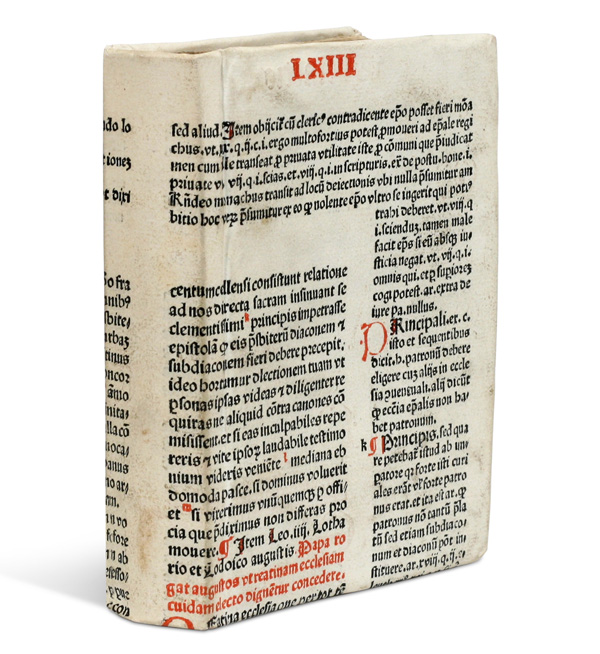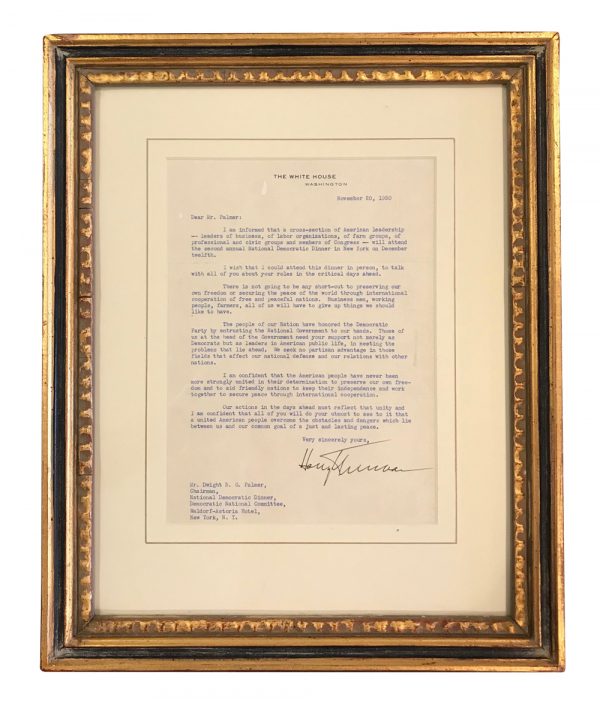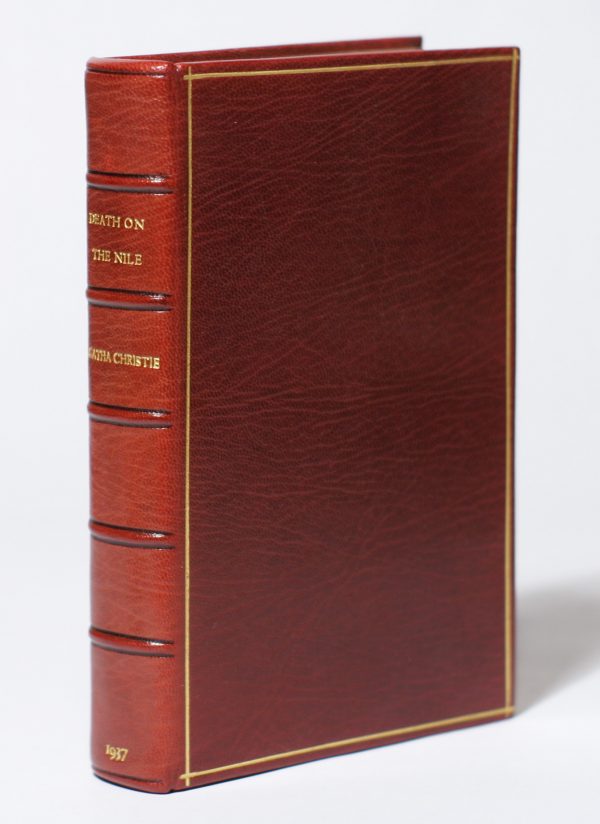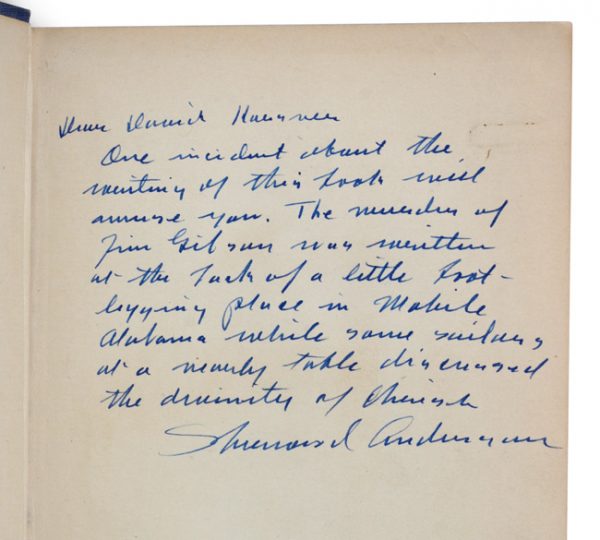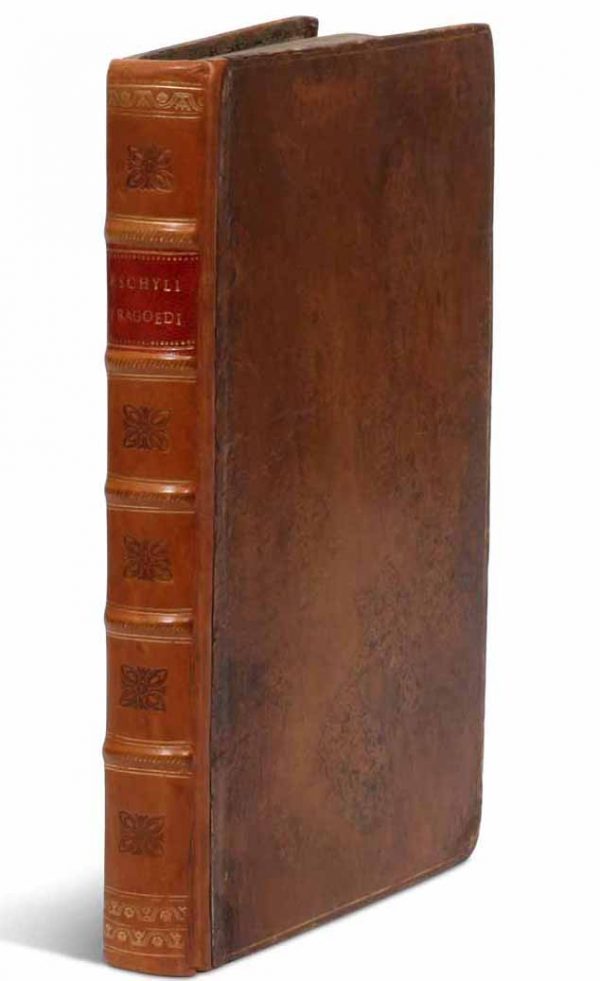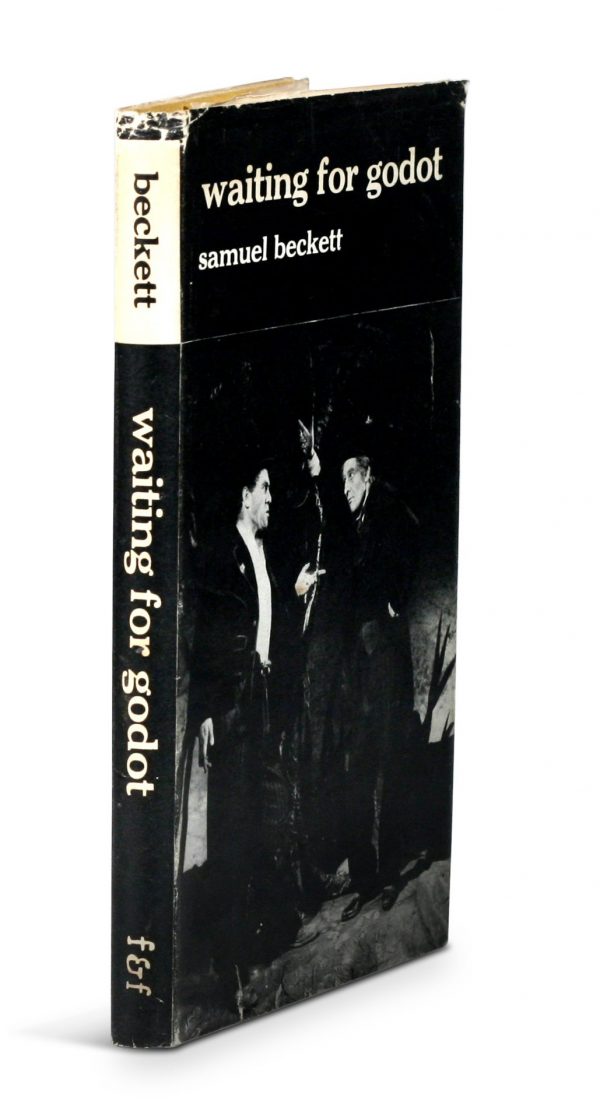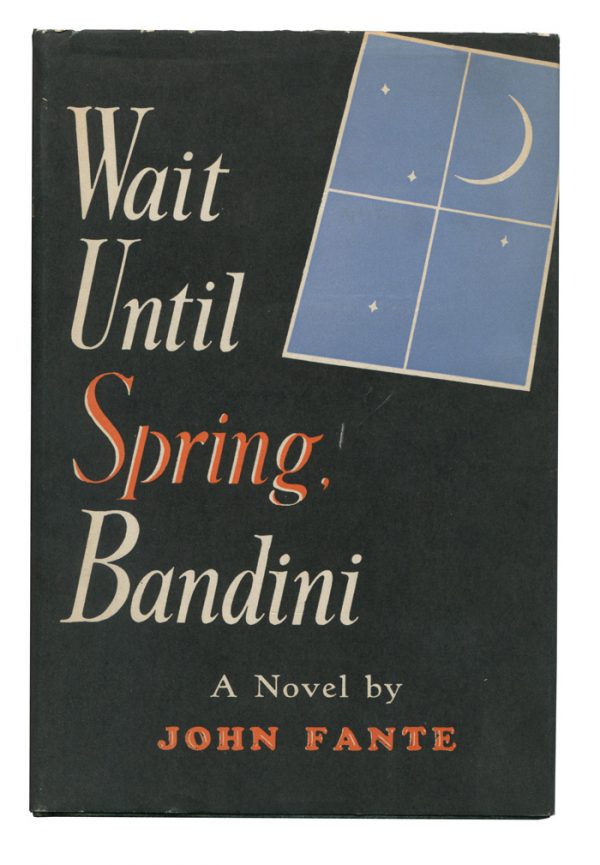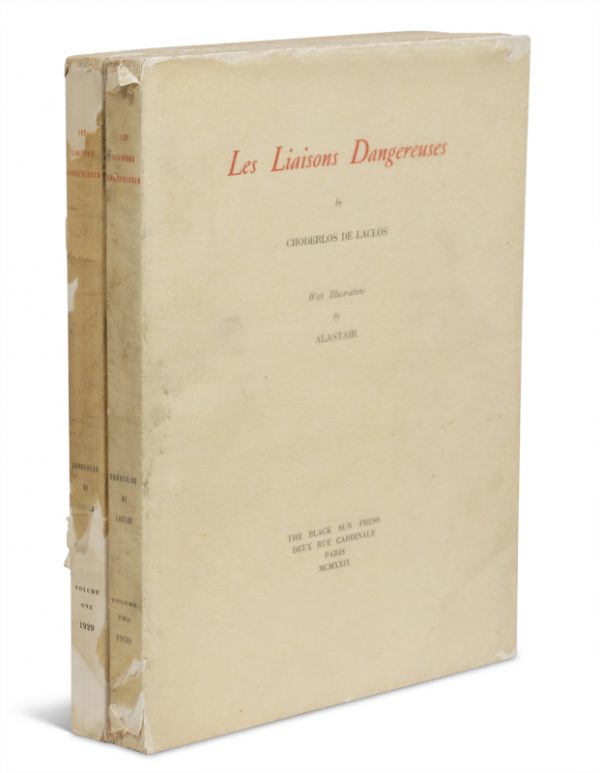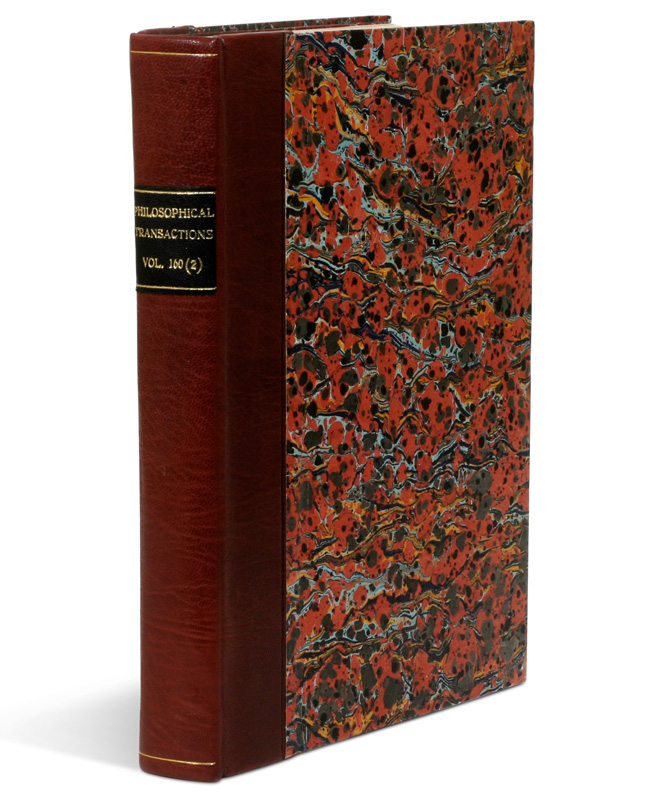
JEVONS, W. STANLEY
On the Mechanical Performance of Logical Inference
- $1,500.00
FIRST EDITION of Jevons’s explanation of his “logical piano”; a landmark in computer science.
To the reader of the preceding paper it will be evident that mechanism is capable of replacing for the most part the action of thought required in the performance of logical deduction. Mental agency is required only in interpreting correctly the grammatical structure of the premises, and in gathering the purport of the reply… The machine is thus the embodiment of a true symbolic method or Calculus…
Jevons invented a “logical piano” (so named because it resembled a small upright piano) that could perform, through a sequence of switches, various types of logical calculations. In doing so, he became “the first person to construct a machine with sufficient power to solve a complicated problem faster than the problem could be solved without the machine’s aid” (Goldstine). “On the Mechanical Performance of Logical Inference,” a paper Jevons read before the Royal Society on January 20, 1870, is his most detailed description of this early prototype of the modern computer. The logical piano now stands in the Museum of the History of Science in Oxford.
In: Philosophical Transactions of the Royal Society of London for the year 1870, pp. 497-518, Vol. 160, Part II (the complete volume). London: Taylor and Francis, 1870. Quarto, modern half-calf over marbled boards, with the original wrappers bound-in. A fine copy.


